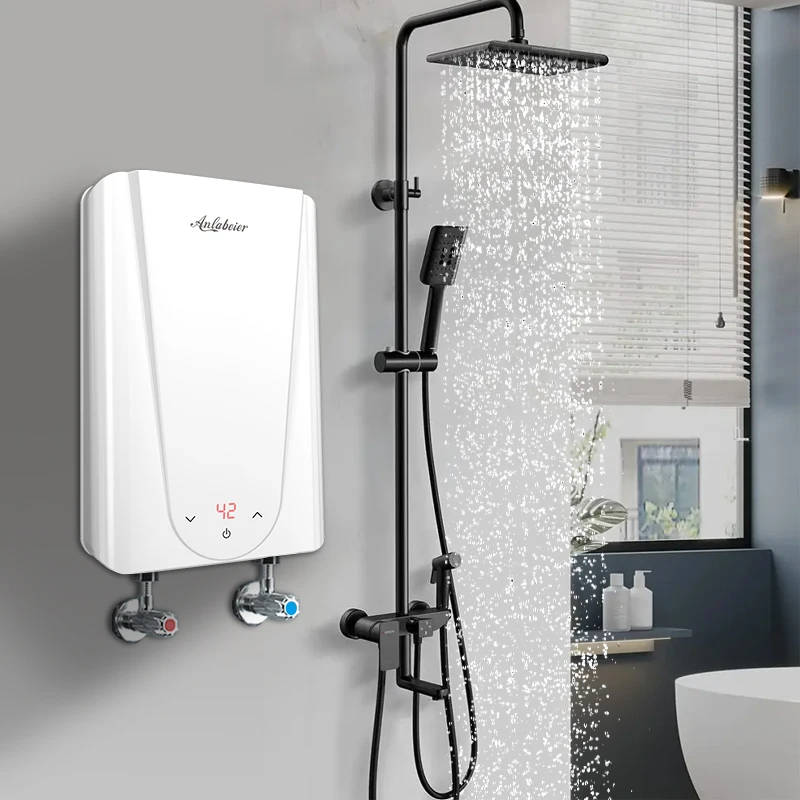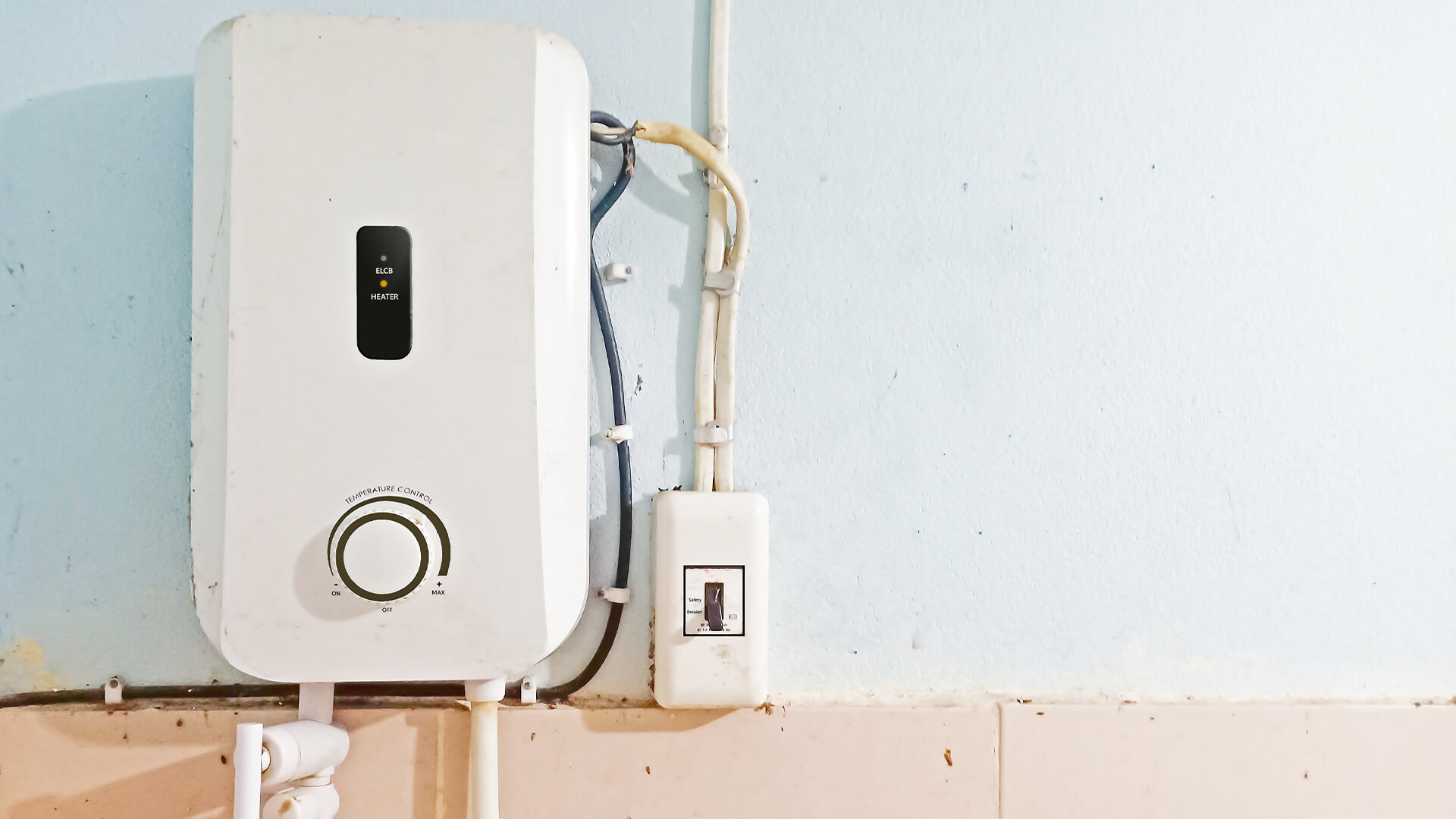Optimizing Home Comfort: The Benefits Of Tankless Water Heaters
Optimizing Home Comfort: The Benefits Of Tankless Water Heaters
Blog Article
The content directly below involving Why You Should Consider a Tankless Water Heater is absolutely attention-grabbing. You should give it a look.

In a globe where convenience and performance reign supreme, it's not a surprise that property owners are continuously in search of smarter means to handle their home's energy usage and convenience. One technology that has actually gradually gained appeal is the tankless water heater. However just what makes these systems attract attention from the standard tank-based versions the majority of us grew up with? Let's dive in and discover the advantages of tankless water heaters, helping you decide if it's time to make the button in your home.
Intro
Picture this: you enter the shower after a long day, anticipating a calming cascade of warm water, just to be greeted by icy beads because the last individual used all of it up. Sound acquainted? Conventional hot water heater store a set quantity of warm water, implying you go to the mercy of that tank's supply. Tankless systems, on the other hand, warm water as needed. No more running out mid-shower, no more fumbling with schedules simply to make certain warm water is offered.
Recognizing Tankless Hot Water Heater
What Are Tankless Water Heaters?
Tankless water heaters, in some cases referred to as on-demand or instantaneous water heaters, give hot water just as it's needed. Instead of keeping gallons of pre-heated water, these systems kick right into activity the minute you activate the faucet. Water travels through a heat exchanger, warming up in real-time, meaning you get a continuous flow of hot water without the need for a large container resting lazily by.
How Do They Differ from Traditional Equipments?
Traditional heating systems hold a storage tank of warm water, making use of energy to keep that storage tank at a constant temperature level. Tankless devices eliminate the standing supply, reducing thrown away energy and the bulky footprint of a large cyndrical tube. Basically, you're upgrading from a "accumulation" frame of mind to a "made-to-order" approach.
Typical Sorts Of Tankless Units
Tankless hot water heater typically can be found in two selections: gas and electric. Gas designs tend to supply greater flow rates, perfect for larger families, while electrical models typically offer smaller sized homes and are generally less complicated to install. Furthermore, some systems are made for point-of-use (serving one component) while others can handle the whole home's warm water demands.
Secret Benefits of Tankless Water Heaters
Energy Performance and Price Cost Savings
Say goodbye to heating a giant storage tank's worth of water and keeping it cozy all the time. Tankless heaters reduce standby power losses, which can reduce utility bills. While the first cost could be greater, the long-lasting financial savings frequently warrant the investment.
3. Space-Saving Design
If your home is short on storage, eliminating the large container frees up useful space. Tankless units are compact and can typically be mounted on wall surfaces, stashed in edges, or mounted in tight energy storage rooms without having all to oneself the entire room.
4. Longer Lifespan
A well-maintained tankless hot water heater can outlive its tank-based cousin. Traditional tanks may last 10-15 years, while tankless versions can keep downing along for 20 years or even more, making them a solid investment with time.
1. Endless Hot Water Supply
Ever needed to arrange showers so everyone gets their reasonable share of warm water? With tankless, that comes to be a distant memory. As long as the heating unit's circulation capability isn't gone beyond, you can take back-to-back showers without turning into a popsicle.
5. Improved Water Top Quality
Saving water in a tank can sometimes lead to sediment buildup or a somewhat "off" preference. With tankless systems, fresh water is heated on the spot, reducing the possibilities of sediment buildup and possibly providing cleaner-tasting water.
Factors to consider Before Changing
Though the benefits are engaging, it's smart to think about a couple of elements before completely committing.
Examining Your Home's Water Usage Patterns
If your family simultaneously uses numerous components with high warm water demand, make sure the unit's flow price fulfills your demands. Recognizing your use patterns aids you choose the appropriate size and sort of tankless heating unit.
Upkeep and Treatment Tips
Tankless systems are relatively reduced maintenance, however they aren't set-it-and-forget-it home appliances.
Normal Cleaning and Descaling
Difficult water minerals can accumulate in the warm exchanger, influencing performance. Routine descaling (often recommended yearly) keeps the system running at peak performance.
Yearly Specialist Inspections
A yearly checkup from a professional guarantees small concerns are captured early. They'll examine the unit's performance, look for leakages, and help preserve optimum effectiveness.
First Investment Expenses
Tankless heating units typically feature a greater upfront price. In between the device itself and potential setup adjustments, the first price might offer you sticker label shock. However bear in mind to watch it as a lasting financial investment.
Installation Requirements
Depending upon your home's facilities, you may need extra electrical capability or gas line upgrades. Ensure you comprehend the installation needs and seek advice from an expert to avoid shocks.
Guaranteeing Appropriate Air Flow
For gas designs, correct ventilation is vital to safely eliminate exhaust gases. See to it venting systems are clean and appropriately installed to avoid any kind of potential safety and security risks.
Contrasting Different Brands and Versions
Not all tankless hot water heater are created equal.
Investigating Dependable Makers
Try to find trusted brands with a history of creating high quality units. A trusted manufacturer frequently supplies much better client assistance and longer guarantees.
Setup: Do It Yourself or Specialist?
While some property owners delight in dealing with tasks themselves, tankless setup could not be the very best time to burst out the toolbox.
Benefits and drawbacks of DIY Setup
A do it yourself install might save cash, yet it comes with risks. Inaccurate setup can bring about ineffectiveness or safety and security problems. If you're handy and have experience, it might be feasible-- yet wage care.
Reviewing Testimonials and Customer Comments
Customer evaluations and responses from next-door neighbors or buddies that have gone tankless can use important insights. Occasionally, real-life experiences can be more informing than advertising brochures.
When to Call an Expert Plumbing Technician
For many, calling a pro makes sure every little thing's done properly. A professional plumbing recognizes regional codes, sizing needs, and venting specifications, decreasing the threat of mishaps.
Making the most of Effectiveness
You have actually invested in a tankless device-- now maximize its effectiveness.
Optimum Temperature Level Setups
The majority of people set their units between 120-140 F. Changing the temperature can enhance comfort and cost savings. Experiment to discover a wonderful area that does not waste energy.
Pairing with Low-Flow Fixtures
Wish to extend your device's capabilities? Think about setting up low-flow showerheads and taps. They decrease water usage, allowing your tankless system to provide a constant stream of warm water without straining.
Environmental Impact
Tankless water heaters align with greener living goals.
Reduced Carbon Footprint
By using less power and only home heating water as needed, tankless systems can decrease your home's carbon footprint, lowering your environmental influence.
Saving Natural Resources
Less energy intake and less lost warm water translate right into less natural resources being utilized, an ecological win-win.
That Benefits Many from Tankless Heating units?
The appeal of tankless heating systems is that they can suit a variety of homes.
Big Family Members vs. Single Residents
Big households may like the unlimited hot water supply, while single occupants value the power cost savings from not heating up an entire tank for simply one person's morning shower.
Property Owners with Minimal Space
If your home is short on square footage, losing the cumbersome storage tank maximizes area for other fundamentals-- or maybe just more breathing space.
Eco-Conscious Consumers
Going tankless aligns with environmentally friendly worths, guaranteeing you're not squandering power or resources.
Future Fads in Tankless Water Heaters
The globe of home devices is ever-evolving, and tankless water heaters are no exemption.
Developments in Modern technology
R&D is continuously boosting heat exchangers, making systems much more effective and sturdy. Future models may be also quieter, extra compact, and better matched for varying climates.
Smart Home Combination
Envision readjusting your hot water heater's temperature level using an application or obtaining upkeep signals on your phone. As clever home technology breakthroughs, we'll see even more connectivity and comfort.
Final thought
Selecting a tankless water heater is greater than simply updating your home's warm water system; it's purchasing lasting comfort, power efficiency, and a greener way of living. By considering your house's water use, being mindful of installation needs, and devoting to routine upkeep, you can appreciate a consistent stream of hot water without the luggage of a bulky storage tank. As innovation evolves, you can expect even smarter, extra efficient tankless options that not just make your life less complicated but likewise profit the planet.
Pros and Cons of Tankless Water Heaters
Tankless Water Heater Pros
Saves Energy: Simply put, you re spending less energy to create hot water, so your total carbon footprint goes down, not to mention your bills. Lasts Longer Than Storage Tanks: Storage tank units need to be replaced every 15 years or so. But tankless units? They can last for 30 years before they give out on you. Constant Hot Water: Need to take a shower and don t want the water running cold? Awesome it won t. The water will stay hot the entire time because it creates hot water on demand. Saves You Money: Less water usage equals less money. Beyond that, you re not paying to keep water hot 24/7. Those savings add up quickly. Better for the Environment: Less water waste is better for everyone. It saves you money, but it s also environmentally conscious at the same time. Tankless Water Heater Cons
It Can Take a Minute: Depending on your specific unit and its placement, it can take anywhere from 10 seconds to 2 minutes to fully heat up. Because there s no storage tank, it heats water as you need it. Upfront Purchase Price: While we talked about their longevity, there s sticker shock when you look at brand-new tankless units to install. It pays for itself, but it s still a big chunk of change at first. Has its Limits: If you run multiple appliances at once, such as the dishwasher, washing machine, and maybe you take a shower at the same time, there might not be enough hot water. https://www.airsouthnow.com/blog/water-heater-service/pros-and-cons-of-tankless-water-heaters/

Do you like reading up on 5 Benefits of Tankless Water Heaters? Place a remark further down. We would be delighted to listen to your insights about this post. We are looking forward that you visit us again before long. Do you know about another individual who is occupied with the subject? Feel free to share it. I value reading our article about Unveiling the Hot Trend: The Benefits of Tankless Water.
Estimate Report this page